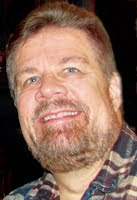Once the fledgling writer commits to becoming a Writer, a modicum of discipline must emerge.
Writing doesn’t just happen. It’s crafted. Molded. Cogitated over. Revised, reviewed, reworked and rechecked.
How’s that done? What’s the secret? What does the fly on the wall see when it looks down upon the struggling author?
Probably, in Winston Churchill’s immortal words, a lot of blood, toil, tears and sweat. It’s war. And the words always win.
It’s only a question of whether the author is wise enough to quit fighting the words, and sign on as an ally.
Between now and the end of the kickoff of the BCS Championship Game in Pasadena next Thursday, let’s look at six tactics the wannabe writer can pursue – not tips or tricks or strategies, but physical actions that real-world Writers all embrace.
Tactic 1: Do it.
Yeah, it’s really that simple.
The Great American Novel doesn’t write itself. You’ve got to move the pen. Punch the keyboard. Delete, cut, paste, undo ... but most of all, DO.
Create a benchmark: 500 well-crafted words is a good day – 250 superbly crafted is probably better, but that depends on the sophistication of your audience.
Devote two, maybe three hours a day to the keyboard – more if you’re really on a roll; less if the muse escapes you. And realize that the physical act of typing words into a dumb terminal is only one phase of the writing process.
The rest? Read, research, talk on the phone, network, sell yourself, market, blog, and then read some more. Any time you dedicate the attention of your brain to the writing chore ... well, you’re writing. You can do it standing in line at the movie theater, daydreaming in the park, pumping iron at the gym or stuffing a breaded pork chop in your left cheek.
Doing it, however, is not recommended when you’re doing it, if you catch my drift.
Bottom line, you need only spend half a day working at it to become a successful writer.
What you do with the other 12 hours is your own business.
